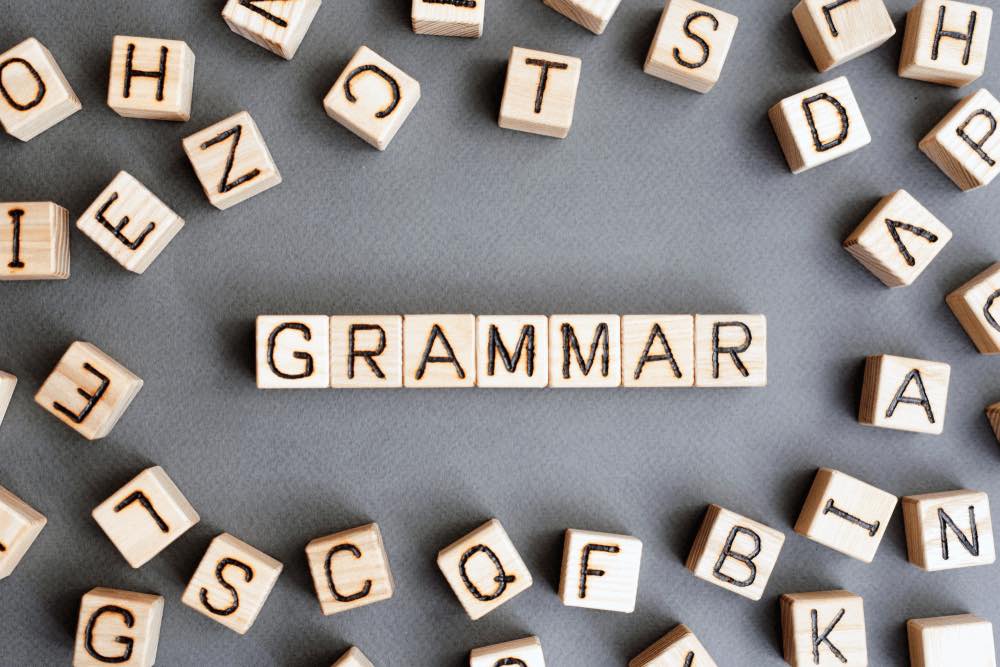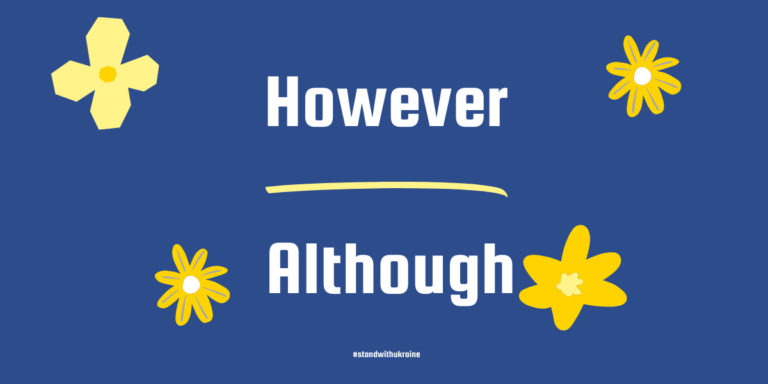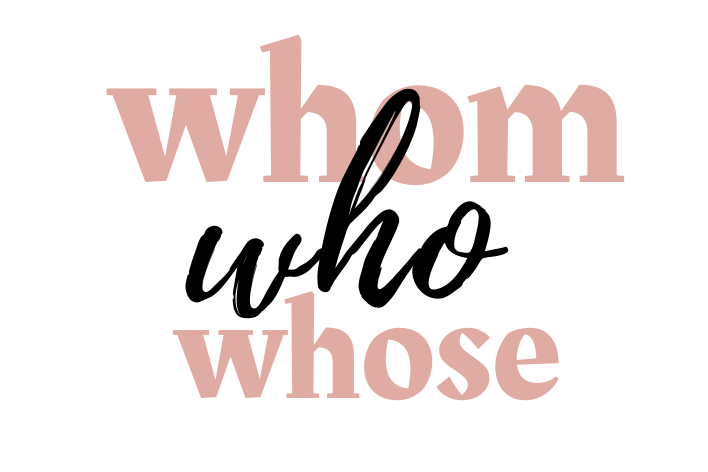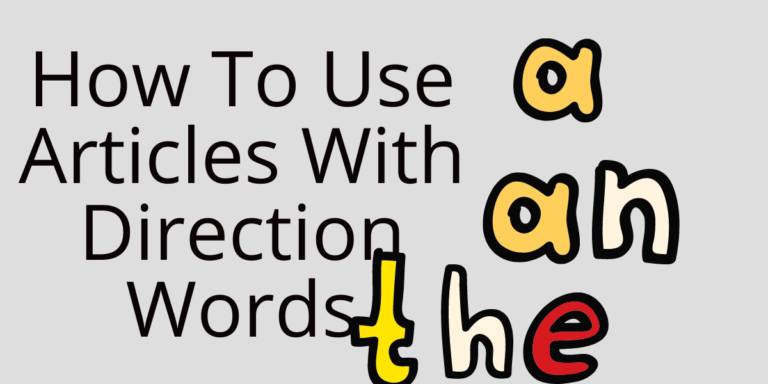Determiners in English
A determiner is a word; such as the, my, a, this, some, enough, much each, any; that clarifies the noun that follows it.
Indefinite articles
In English, “A, An, and The” are called indefinite articles. Although these words seem small and harmless, they are incredibly important to the grammatical structure of a sentence in English. Many new students who are learning English find the use of these articles confusing as some languages do not have or use the same grammatical structures. In order to begin a journey to learning basic English, it’s a good idea to start with learning these elements.
When To Use “A” and “An”
There are also a few guidelines that need to be remembered so that your indefinite article usage is correct and understood. Firstly, indefinite articles are used with singular nouns. Be sure to use “a” before nouns that begin with a consonant and use “an” before nouns that begin with a vowel. Below are some examples of sentences using “a” and “an”:
- Have you ever seen a lion?
- Would you like to eat an apple?
- She is reading a book in the library.
- I will need an umbrella for today’s walk.
Be aware that some words may begin with a silent h sound (for example hour or herb). In this case, use the article “a” for these particular words.
- We have been here for an hour.
- Basil is an herb to use when cooking.
So, when is it time to use “the” in a sentence? Let’s take a look!
When To Use “The”
“The” is different in that it is called a definite article. This means that when a person is using “the” when speaking to someone, the person they are speaking to already knows which person or thing you mean.
- My sister is in the car.
- Turn the television on so we can watch the movie.
- The cats love to play with the yarn.
Now that you know the rules about when to use these articles, let do a quick review:
- What are considered to be “the articles” in English?
- a, an, the
- this, that, those
- He, she, them
- who, what, when
- Fill in the blanks.
- Have you ever seen ___ elephant?
- You’ll need ___ ruler and ___ pencil?
- We have been waiting for ___hour!
- I will wait in ___car.
Nouns without articles?
Yes, it is possible to use nouns without having to incorporate any articles and still having a grammatically sound sentence. This happens when speaking about something in general and not specifically. There are some examples below:
- Horses are my favorite animal.
- Dogs bark a lot.
- Birds are animals that fly.
Nouns that don’t show quantity are often without the use of “a” and “an”. Also, the article “the” may be used with nouns that don’t show quantity. Some examples follow:
- I love sunshine.
- I sometimes have cereal for breakfast.
- Can you pass me the salt, please?
Demonstrative determiners
This, that, these, and those are all pronouns called determiners. These pronouns are used to point out what thing or person you are referring to. Be sure to use “this” with singular nouns and “these” with plural nouns in order to have a correct sentence.
Use this with singular nouns
- Who drives this car?
- This house belongs to my father.
- This music album is my favorite.
- This banana tastes amazing.
Use these with plural nouns
- These shoes are too big.
- I don’t like these movies.
- I bought these chips to eat.
- These crackers are gross.
When using “that” and “those”, there is a reference of location. In this case, “that” and “those” are for things that are farther away from you.
Use that with singular nouns
- This is my pencil and that one is yours.
- Would you pass me that paper, please?
- How much is that sweater?
Use those with plural nouns
- Those children are so loud!
- Those are great pears.
- These are my pens and those are your pens.
Let’s practice!
Demonstrative determiners are ___ and ___ ,and used for things and people near you.
Use ? with singular nouns.
- Who lives in ________house?
- ______ car belongs to my mom.
- Does ______ key fit the lock?
- _______ book is my favorite.
- Who gave you ______ money?
- ________ cheese tastes funny.
Use ? with plural nouns.
- ____ trousers are too short.
- I don’t like ____ comics.
- ____ biscuits don’t taste very good.
- I bought ____ apples for lunch.
- Is there an adult with ____ children?
2. Use ____ and ____ to talk about things that are farther away from you.
Use ? with singular nouns.
- This chair is mine and ____ chair is yours.
- ____ animal is making a funny noise.
- Would you pass me ____ book, please?
- Who is ____ man talking to Dad?
- How much is ____ dress?
Use ? with plural nouns
- I gave my sandwiches to _____ boys.
- _____ children go to a different school.
- These shoes are mine and _____ shoes are yours.
- These apples look fresh but_____ apples look rotten.
- _____ people are from America.
Other Types of Determiners…
How do we know how many of something we are talking about? How do we ask a question or inquire about someone or something? How do we show someone has something or possesses an object? There are a few other determiners that will help us figure these questions out. What other determiners are there?
Quantifying Determiners:
These are words such as “many”, “much”, and “several” to show a quantity without giving a specific number. There are certain quantifying determiners that are only used with plural nouns. These words are “few, a few, fewer, many, several, and both”. Examples of quantifying determiners paired with :
- There are a few cookies left to eat after dinner.
- Several people are going to the event tonight.
- May I have both of those books?
So what about plural nouns that also have no exact number? These quantifying determiners are all, some, half, enough, a lot of, lots of, more, plenty of, and other. Take a look at how they are used:
- We ate all of the food at dinner.
- Some people love to read.
- Do you have enough ingredients to make the recipe?
To expand, there are some quantifying determiners that are only used with nouns and no exact number. These words are much, less, little, and a little.
- There’s a little pasta left if you would like it.
- I’ve got less work to do than you.
- There is little time to get it done.
In contrast to this, there are some quantifying determiners that are only used with singular nouns. You may have heard these before: another, each, and every.
- Each blanket is made of different materials.
- She like every vegetable she has tried.
- He needs another pen.
And lastly, and a commonly mistaken one, is the difference between either and neither quantifying determiners. Use these when referring to two or more people or things within a conversation.
- I don’t like either of those.
- Neither man is tall.
When using quantifying determiners in a sentence together with another type of determiner, use the word “of” to separate them.
- I don’t like any of these choices on the menu.
- Some of my friends do not like classical music.
Let’s Practice!
1. Words such as _____, ______ ,and ______ tell about quantity without giving an exact number. They are called quantifying determiners.
2. Some quantifying determiners can be used with plural nouns and nouns that show no exact number.
A. 12, 1, 20
B. All, half, some, enough
C. This, that, those
Interrogative Determiners
Whose, what, and which are interrogative questions, are seen before the noun in a sentence.
- Which one do you like?
- What are those?
- Whose book is this?
Possessive Determiners
To show ownership within a sentence, we would use words such as “your”, “my”, “their”, “its”, and “our” before a noun. This is a possessive determiner.
- You can have my pencil if you would like.
- Is this your car?
- There’s a snake in my boots!
- Shelly broke her bike today while riding.
There is a special note about using “your”. “Your” can be used when talking to one person or many people.
- Kate and Kelly, your order is ready for pick up.
There is a chart below that will help you remember how and when to use the proper possessive determiner:
| Singular Personal Pronoun | Possessive Determiner |
| I (subject pronoun) | my |
| me (object pronoun) | my |
| you (subject/object pronoun) | your |
| he (subject pronoun) | his |
| them (object pronoun) | their |
| she (subject pronoun) | her |
| her (object pronoun) | her |
| it (subject/object pronoun) | its |
| Plural Personal Pronoun | Possessive Determiner |
| we (subject pronoun) | our |
| us (object pronoun) | our |
| you (subject/object pronoun) | your |
| they (subject pronoun) | their |
| them (object pronoun) | their |
Wrap-Up
As you can see, there are quite a few rules to using the different kinds of determiners that are in the English language. While this may seem difficult, learning these determiners can change your English skills dramatically! Take time to review and do the practice steps to help you learn quickly.







